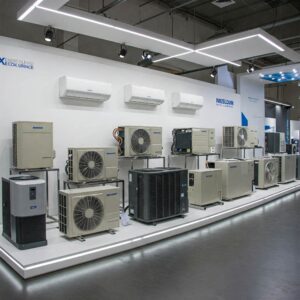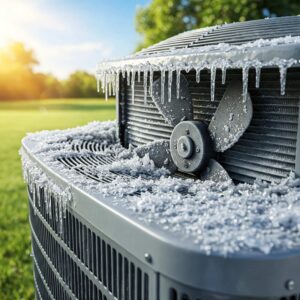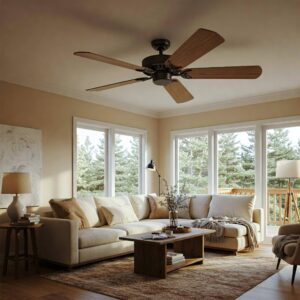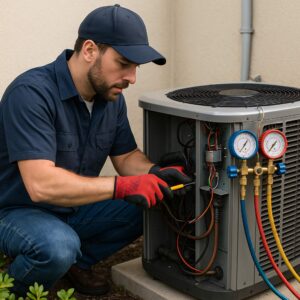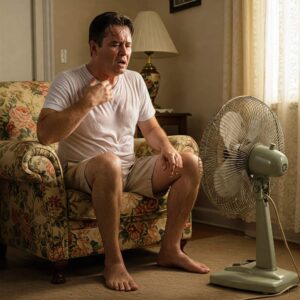Calgary homeowners’ priorities with HVAC often center on making the home cozy enough in winter —but don’t forget the summer months can get pretty warm and humid!
No home wants to be without proper AC when the mercury hits 30 degrees Celsius. And with Calgary summers undoubtedly getting warmer each year, it’s more important than ever to get the right cooling equipment installed.
So, what does AC cost in Calgary? Which factors affect the price, and how should you go about choosing the right AC system for your home and your budget?
Let’s find out so that you can make an informed decision when comparing AC units:
How much does AC cost in Calgary?

Air conditioner costs in Calgary range from a few thousand dollars up to ten thousand dollars or more. This broad range is surprising for many homeowners, but air conditioner pricing depends on a variety of factors.
At the lower end of the spectrum, a fully installed air conditioner of reasonable quality will set you back around $5,000. For a top-efficiency model that lasts longer, uses less electricity (saving on monthly bills), and operates almost noiselessly. $8,000-$12,000 is more realistic— but it will pay you back over its long lifespan.
As you search for a new AC system for your Calgary home, the range of options can be disorientating. Comparing like-for-like quotes from HVAC companies that differ so widely can be tough. How do you know who to trust?
Also, AC can refer to a single unit cooling one room or central AC, which is part of the overall HVAC system in a home, heating and cooling the air as required and distributing it through ductwork.
Since around three-quarters of homes with air conditioning in Alberta use central AC with a traditional split-system design (a condenser outside and an evaporator inside), that’s the focus of this article.
Why do AC installation costs in Calgary vary so much?
Educating yourself about the factors that impact AC costs can help you to cut through the “noise” and make an informed decision when selecting both the appropriate cooling equipment and the professionals you entrust your AC installation to.

Main factors that impact AC costs in Calgary
Estimates from AC installation companies with higher upfront costs can mean one of two things:
- You’re getting a higher-quality AC system
- You’re being charged a premium by the HVAC company for labour (which may or may not be justifiable)
Don’t discount unscrupulous AC companies that overcharge. It happens. However, several factors genuinely impact the cost of AC in Calgary. Familiarize yourself with these to avoid unnecessary expense and an AC system that doesn’t do its job properly…
Home size and insulation
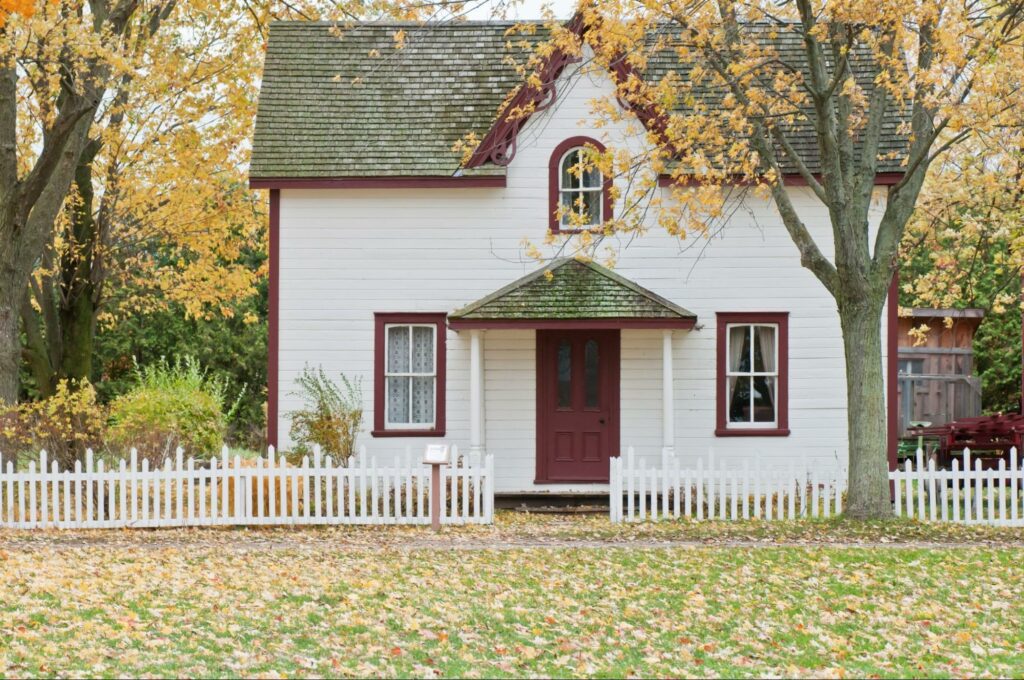
As with furnace installation, the model of the central AC unit you choose (and its associated costs) will depend greatly on the size of your home.
The average home size in Canada is one of the largest in the world—coming in at around 1,948 sq. ft. Most Calgary homeowners understand that the bigger the space to cool, the larger the AC unit required to maintain a comfortable temperature in the warmer months.
But home size is not the only aspect of your home that affects air conditioning. The insulation in your home is also a factor. Generally speaking, the newer the home, the better the insulation—so less energy escapes.
You’ll also need to take into account the number, size, and aspect of all windows in the home as well as ventilation around the home.
A full load capacity assessment can accurately pinpoint the cooling power needed to meet your home’s needs.
AC unit size
Correctly sizing the AC that you need is important. A wrongly sized unit can cycle on and off too frequently. which will inflate your electricity bills, cause unnecessary wear and tear on the unit or lead to inadequate cooling of your spaces.

Again, a full heating and cooling assessment will go a long way to setting your mind at rest that you install the correct size of AC equipment for your HVAC system.
There are two main measurements for sizing AC units in Canada: BTU and tonnage.
The tonnage refers to an HVAC system’s ability to cool a space by removing heat. The larger the tonnage, the greater the cooling power and, generally speaking, the higher the cost.
The tonnage depends on how many British thermal units (BTU) the unit absorbs and removes per hour. One BTU is equal to the amount of heat required to heat a pound of water by one degree Fahrenheit.
A Calgary home sized between 1,450 and 1,700 square feet generally requires a 2.5- to 3-tonne unit. Here are some other guidelines:
| Home size | Tonnage | BTU |
| 750 to 1,000 sq. ft. | 2 | 12,000 – 18,000 |
| 1,050 to 1,400 sq. ft. | 2.5 | 18,000 – 30,000 |
| 1,450 – 1,700 sq. ft. | 3 | 30,000 – 36,000 |
| 1,750 – 1,900 sq. ft | 3.5 | 36,000 – 42,000 |
| 1,950 – 2,200 sq. ft. | 4 | 42,000–48,000 |
| 2,250+ sq. ft. | 5 | 48,000+ |
One general rule frequently used by HVAC contractors when calculating a home’s required cooling capacity is to allow 23-25 BTU per square foot, 200 BTU per window, and 200 BTU per occupant.
SEER rating (energy efficiency)
AC units sold in Canada come with an energy efficiency rating of between 13 and 26 SEER rating (Seasonal Energy Efficiency Ratio).
The higher the SEER rating, the more energy-efficient the unit is. Higher efficiency units are usually more expensive, all else being equal. The extra upfront expense should gradually be paid back by lower monthly energy bills.
With the technological advances and government policies to make homes more energy efficient, newer AC units sold in Calgary are generally more energy efficient than their predecessors.
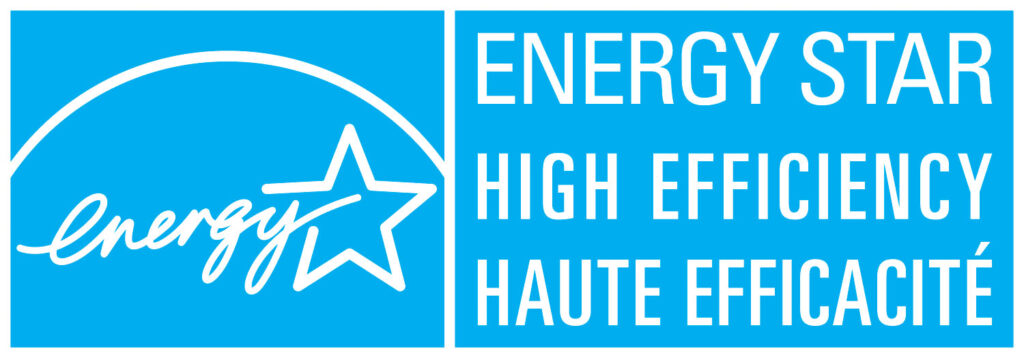
In Canada, all central conditioners must have at least a SEER rating of 13.4 according to the federal government’s Energy Efficiency Regulations. AC units with a SEER rating of at least 14.5 will earn the Energy Star certification.
AC warranty
All new air conditioning units come with warranties but the length and coverage of these warranties vary from manufacturer to manufacturer and HVAC company to HVAC company.
Longer warranties usually increase the upfront costs. Professional HVAC contractors should provide the following:
- A manufacturer’s warranty of 2-10 years covering faulty equipment and parts
- A contractor’s warranty, covering the installation work
- The option of an extended warranty

At Alberta Mountain Air, the standard manufacturer parts and labour warranties of the AC units we install are for 10 years. We also back this up with a 15-year warranty on labour with select AC maintenance plans.
Remember, longer warranties can save on AC repairs and maintenance costs over the long life of an air conditioning system.
AC brand
Different air conditioners may look the same, sound the same, and even perform the same; some may even originate from the same manufacturing plants. But the brand matters when it comes to AC cost.
Some of the premium AC brands found in Calgary homes have been established for over a century—and you may pay a little extra for the sense of reliability and dependability that comes from this. A few of these include:
- Lennox
- Trane
- American Standard
- Carrier
There are more than 20 brands of AC units, most offering a range of models with different sizes and efficiencies.

The best AC brands offer a similar quality in terms of dependability and lifespan and similar costs. However, some brands have promotions on certain units and clearance sales at certain times of the year that can help you save money. Watch out for these.
At Alberta Mountain Air, we’ve installed, repaired, and maintained AC units from all of the leading brands—but we always come back to Lennox as the best “bang for the buck”.
AC installation company
You’ll likely start talking to AC dealers, installation companies, and/or HVAC contractors at some point during your air conditioning research.
The decision of who to install your AC system can affect the price. Each company has different overheads, ways of operating, and markups. Be sure you know what you’re getting when you gather estimates —for instance, does the price include all ductwork (if required) and the disposal of the old AC unit if you’re replacing the AC?
AC installation is specialist work, involving know-how in the use of refrigerant and electrical work. You should entrust it only to established and licensed professionals and not attempt DIY. If you need a replacement AC installation, this will involve the removal/draining drain of the existing equipment with responsible disposal.
HVAC technicians will charge anywhere from $1,500 to $5,000 or more for an installation, depending on its complexity.
At Alberta Mountain Air, we’ve been installing AC systems for Calgary residents and businesses for over two decades but we’re not just an installation company. Our team also advises families on how to improve indoor comfort levels and efficiency by addressing all aspects of air quality and temperature in their homes. This is the true “value-add” we provide.
Quick tips for selecting your AC
Selecting an AC system for your home is a big decision that we don’t have space to cover in full here—but we can provide a few useful pointers.
Your decision will impact the long-term comfort of your family as well as your finances. HVAC systems are responsible for over 60 percent of a home’s average energy bills in Alberta, so it’s doubly important to be informed before making a decision.
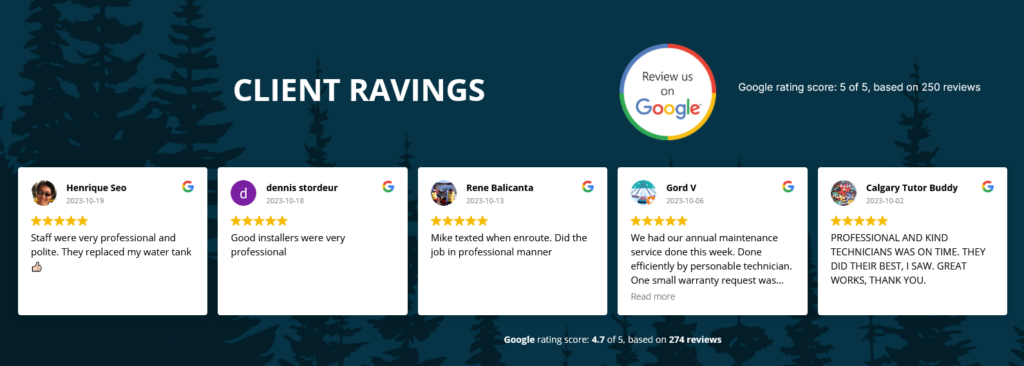
Here are a few recommendations for getting your AC decision right:
- Don’t be pressured by pushy salesmen or time limits on quotes: take your time. Most AC companies will not refuse you if you go back after the “expiry date” of the quote.
- Get at least three written estimates and compare AC units like for like. It’s easy to shape a quote that excludes must-have features.
- Make sure you understand all the costs: double-check that there are no hidden costs on top of what the estimate says.
- Check the warranty: this affects your long-term exposure to hefty AC repair bills as well as your peace of mind.
- Choose an HVAC company with a track record of quality, dependability, and service: it’s easy to check online reviews and do a little homework on your shortlisted companies to ensure that support is provided at every step—even after the sales and installation process.
- Make sure you understand all your options: some HVAC companies may try to sell you the unit that generates the most commission, which limits your options.
- Buy and install AC out of season: you’re more likely to get a better deal on AC when the weather’s cooler and the HVAC technicians aren’t so busy with bookings—shoulder seasons like spring and fall are ideal.
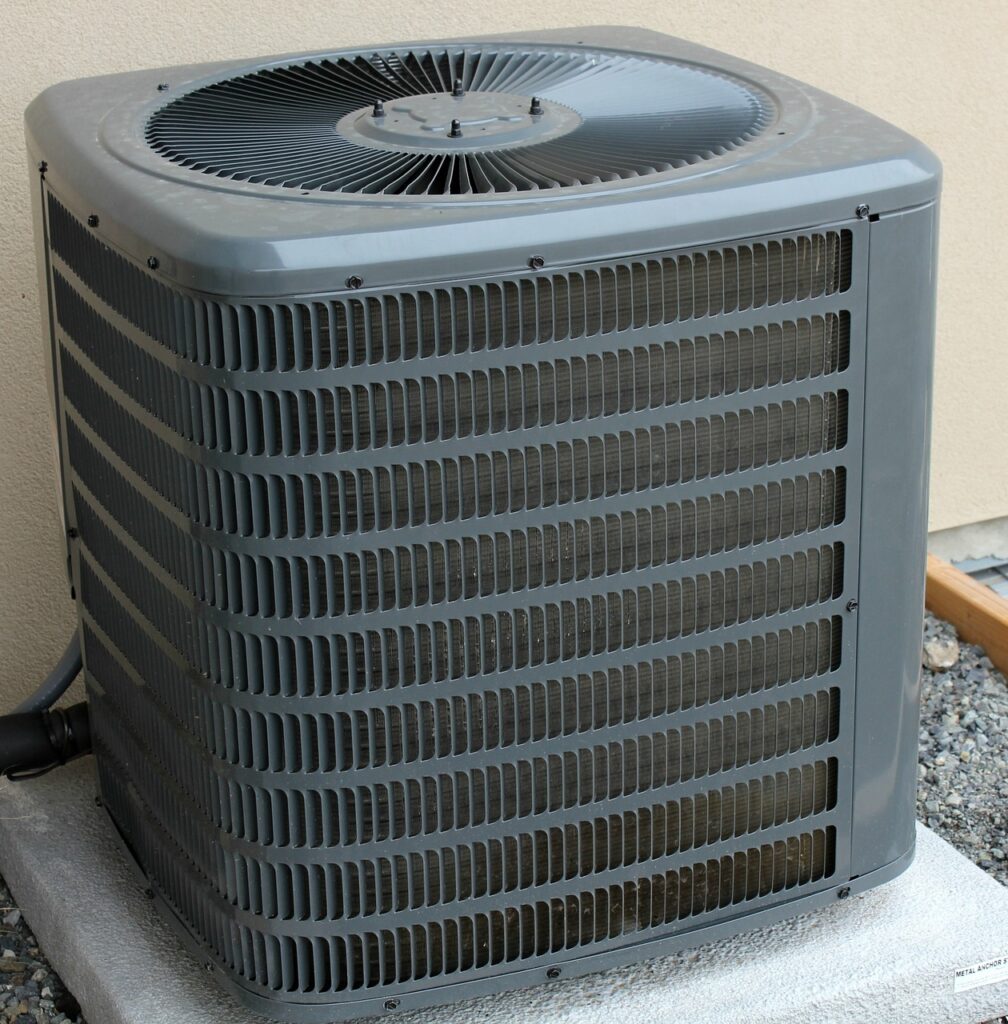
FAQs
Can I use a heat pump instead of an AC and furnace?
It is possible to replace a traditional HVAC system with a heat pump but be careful—Alberta winters are harsh and heat pumps struggle at very low temperatures. So, you’ll need a backup heating source.
| DEC | JAN | FEB | |
| Calgary | -1C/-13C | -1C/-13C | 1C/-11C |
| Edmonton | -4C/-13C | -6C/-15C | -3C/-12C |
| High Level | -13C/-24C | -15C/-26C | -10C/-23C |
Remember, these are average daily high/low temperatures. The mercury can fall below -15C for five or 10 days straight even in southern or central Alberta. A lack of heating in the home during those times makes life very uncomfortable for occupants.
So, to heat homes properly in Alberta, heat pumps should work in tandem with a natural gas or electric furnace. This increases the upfront costs of the system though heat pumps use less energy and can reduce the overall running costs.
Cold climate heat pumps are rated for lower temperatures but these are considerably more expensive than their standard cousins—up to five times more!
This, combined with the abundance of cheap natural gas to power household furnaces means that heat pumps are far less attractive in Alberta than in many milder areas of the country (where oil and gas is more expensive).
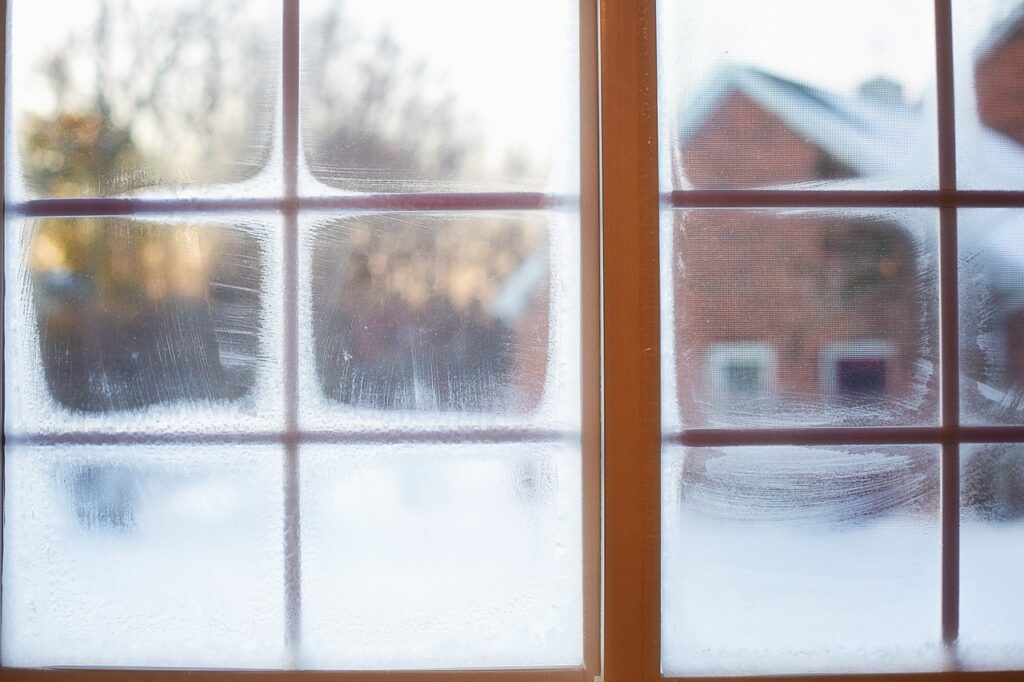
As part of the Canada Greener Homes Grant Initiative, you could access significant financial assistance from the Alberta rebate incentive with energy evaluations and energy-efficient retrofits for your home, including the use of heat pumps.
The City of Calgary also offers low-interest flexible financing for home energy improvements, including heat pumps.
Bear in mind, however, that you may struggle to get insurance for your Alberta home without having a backup heating system for your heat pump.
Gas-powered furnaces still rule the roost with home heating systems in Calgary, Edmonton, and the rest of Alberta. A heat pump can act as your primary heating source in the spring/autumn and your cooling source in summer but you’ll need a furnace or other backup heating system when the cold weather really bites.
This may change in the future as heat pump technology advances and better addresses the needs of super-cold climates.
FAQs
Can I use a heat pump with a gas furnace?
Yes, this is a common solution for homeowners who want the energy-efficient benefits of a heat pump but the reliability of a furnace during the coldest snaps.
Using a heat pump with a backup heating source like a furnace is especially recommended in areas of the country where the mercury regularly falls below -15 or -20 degrees Celsius.
Bear in mind too that not every HVAC system can simply have a heat pump plugged into it. The air handler and ductwork may need to be altered for it to work seamlessly.
Can a heat pump replace a furnace and air conditioner?
Yes, in some areas of Canada, a heat pump can replace the need for a traditional HVAC setup with a furnace and air conditioner. However, in areas that experience the coldest winters, a backup source of heating is usually recommended in case the heat generated is inadequate.
If you’re going to replace a gas furnace with a heat pump, you’ll need to ensure that the old furnace is removed and recycled appropriately, the appropriate electrical work is done and your home’s existing ductwork and insulation is adequate.
Are the costs of a new AC system much different from a replacement?
If you’re replacing an old air conditioning system, the price may be slightly impacted but there shouldn’t be much difference. If existing ductwork can be utilized, the installation will be simpler and less time-consuming but there may be a flat-rate charge to remove the old AC unit.
If you’re considering replacing any part of your HVAC system, it’s best to arrange a full assessment of your home’s needs by an HVAC professional first.
What if I have a mini-split AC?
Mini-split AC systems operate independently of the heating system and are less common in Alberta than central air conditioning. They can be ductless or operate through their own duct systems. These are more common for cooling independant spaces or smaller proerpties like condos, appartments and some townhomes. These prices will vary depending on many of the same factors.
How long will a new AC unit last?
You can expect a new AC from a quality brand to last 10-15 years or more in Alberta. Regular maintenance and inspections can minimize potential problems and extend the life of your system.
How much does it cost to maintain an AC system?
All key components of an HVAC system need regular inspections and your AC requires at least end-of-summer maintenance. The AC system in Calgary homes is less likely to be overworked than the furnace but still requires preventative maintenance every 6-12 months. Costs can be reduced by choosing the right HVAC maintenance plan and checking for current promotions on AC tune-ups.
Get the AC that suits your home and your budget…
AC costs vary widely in Calgary according to the size of your home, the type/size/brand/energy rating of the unit and the expertise you hire to install it.
Expect to pay between $4,500 and $6,500 on average but many higher-end options exist too. A complete HVAC assessment of your home is recommended before committing to expensive heating or cooling equipment.
The team at Alberta Mountain Air can advise you on the best cooling solution for your home. Call us at 403-236-4366 or contact us online for an inspection.
Can heat pumps use gas?
This is a common question in Alberta, where natural gas is so cheap. Unfortunately, heat pumps use electricity, not gas or oil.
The final verdict: Heat pump or furnace?
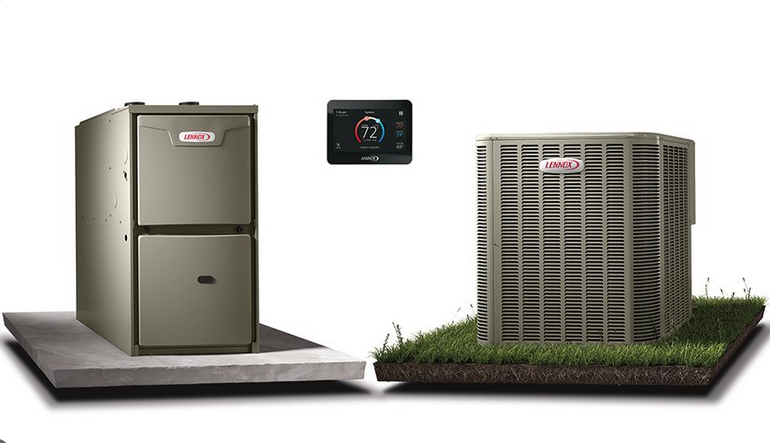
Right now, a heat pump may be a viable option as a primary heating source if you live in an area of Canada that doesn’t experience plummeting winter temperatures (below -20 degrees Celsius) and doesn’t have cheap natural gas available.
However, for most Albertans, heat pumps are more likely to be a secondary heating source because of the low winter temperatures and availability of cheap natural gas to power furnaces. In Calgary, they often work in tandem with furnaces to reduce energy costs and carbon footprints during all but the coldest snaps. When temperatures dip very low, the furnace kicks in.
Furnace and heat pump technology is changing rapidly so it’s best to watch this space over the coming years. Heat pumps may better address the needs of homes in the coldest parts of the country in the years ahead.
Every home’s needs are unique. For tailored advice about heating your home, call the heating and cooling professionals at Alberta Mountain Air at 403-236-4366 or contact us online.
